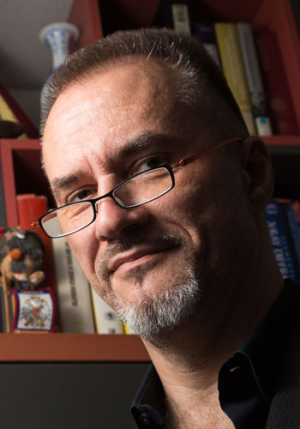A University of Houston Cullen College of Engineering professor has been awarded a $50,000 grant from the American Chemical Society Petroleum Research Fund to study a more efficient, cost effective way to produce platinum fuel cell catalysts.
Stanko R. Brankovic, assistant professor in the department of electrical and computer engineering, received the grant in March. It’s awarded to individuals whose research supports scientific education and fundamental research related to the petroleum field.
As an electrical engineer seeking support for chemical research, Brankovic said the honor is that much more significant. “It’s three times more difficult to receive as and electrical engineer,” he noted.
During the next two years, Brankovic plans to use the funding to study a new approach to catalyst design, the key to making a fuel cell operate more efficiently. Similar to batteries, the fuel cell produces electrical power through a chemical reaction.
The most widely used metal in catalysts to date is platinum—a limited, costly resource. Brankovic’s research will address ways to reduce the loading of platinum in catalysts by creating a monolayer—a single layer of atoms—of the metal. He theorizes this will generate a catalyst configuration “where every atom counts,” thus making the catalyst more efficient.
“The impact is huge,” Brankovic said. “We will be able to design more catalysts at less cost using less of the noble metals, such as platinum, ruthenium and palladium.”
The change in design could lead to the replacement of batteries in applications such as generators and cellular phones. It would also impact the automotive industry where the use of hydrogen fuel cells would help to reduce consumption of gasoline, emitting water vapor into the atmosphere rather than the global warming gas, carbon dioxide.
